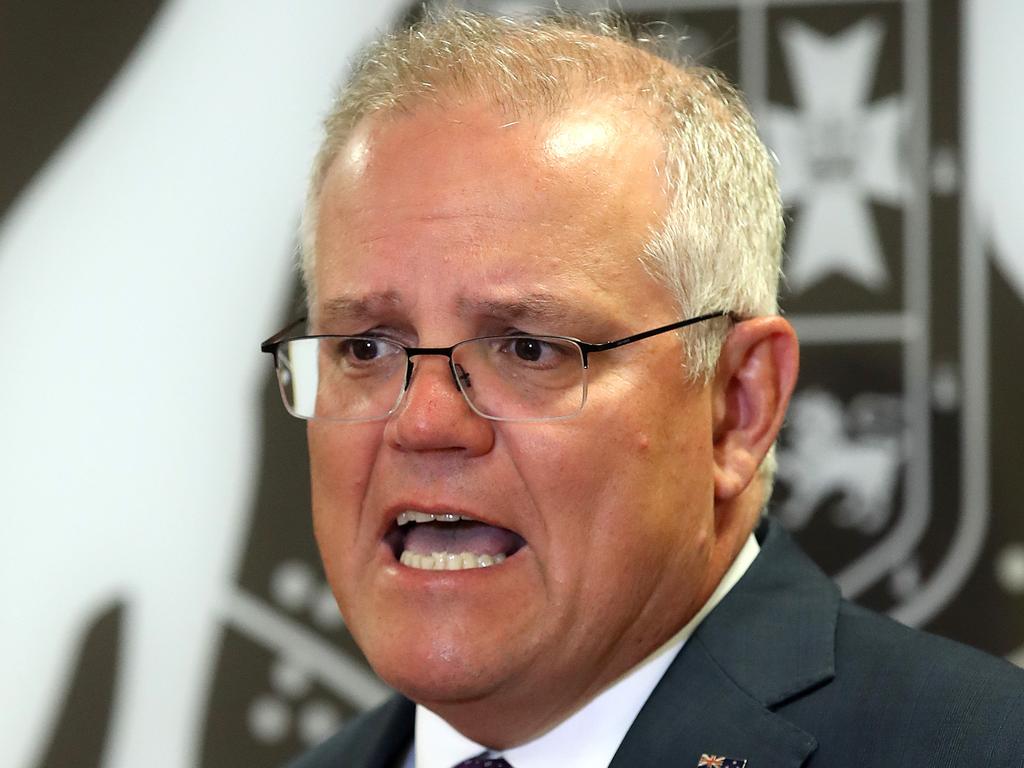Pfizer vaccine rollout ‘conditional’ on overseas delivery: PM
Australia’s first coronavirus vaccine was pencilled in to be rolled out in February. But delays overseas have raised concerns it could be pushed back.

Scott Morrison has hinted Australia’s coronavirus vaccine rollout could be delayed.
The Prime Minister joined state and territory leaders for national cabinet on Friday and was briefed about the implementation plan.
The Therapeutic Goods Administration is expected to approve the Pfizer vaccine by the end of January, prompting a rollout from mid to late February for priority groups – once batches of the jab, arriving from overseas, are tested for quality.
However, Pfizer has delayed some of its vaccine shipments while it boosts production capacity.
Mr Morrison on Friday conceded that when vaccinations ultimately start would be “conditional upon those delivery arrangements” and the capability of the vaccine producer.
“We set out indicative timeframes … but that will obviously change and be subject to any impacts on production schedules overseas,” he said.
The Prime Minister also remained tight-lipped about when Australian authorities would give the Pfizer vaccine the green light.
“We’re not rushing this nor are we delaying it,” he said. “We’re getting it right.”

Labor health spokesman Chris Bowen said Mr Morrison told Australians that we were first in the queue for a vaccine.
“If the Morrison government’s much spun, and vaunted, Pfizer deal cannot even deliver enough vaccines for four million Australians on the previously promised timetable, the Australian people will be able to conclude they were spun a dishonest line,” he said.
Countries across Europe have been left begging for more doses of the Pfizer vaccine as they try to get on top of a rampant virus spread.
The vaccine cannot be made in Australia because of its new mRNA technology.
However, the government is investigating the feasibility of establishing sovereign manufacturing capability.
If viable, production would not be established for another year.
The expert medical panel told the meeting it did not recommend that a coronavirus jab be initially made mandatory for aged care workers.
But Professor Michael Kidd said experts were actively encouraging the residents of aged care, people working in aged care and people coming into the facility to receive the jab.
He said new mutant strains originating in the UK, South Africa and Brazil were concerning and were being monitored for increased transmissibility.




